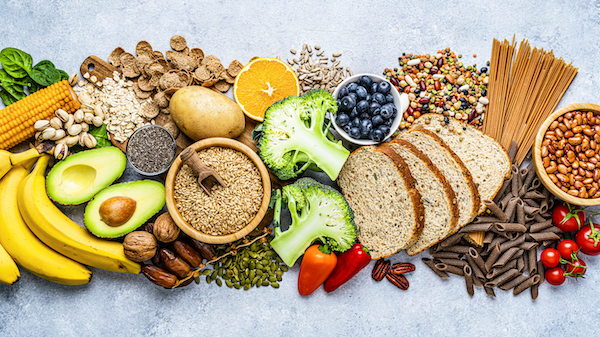I had a patient who went to her regular doctor complaining of gas, bloating, loose stools and discomfort during a stressful time in her life. Unfortunately, like most conventionally trained doctors, he lacked knowledge about digestion. He told her she was eating too fast, not properly chewing her food and swallowing too much air. He prescribed her Gas-X and sent her home.

Too many women receive the same well-intentioned but ineffective advice from their doctors. In fact, most women have digestive problems, and many of them have a food sensitivity. Besides the unpleasant symptoms, a food sensitivity left untreated is a serious health problem over time. So here’s what you need to know before you fall into the “just take an antacid” trap.
What foods can cause an allergy or a sensitivity?
Any food can cause an allergy or a sensitivity, especially if it is something you eat a lot of. In fact, a common question I ask women with suspicious symptoms is: What is your favorite food or the food you can’t live without? This usually provides insight into possible causes for their symptoms.
There are several common food offenders, including:
- Dairy
- Eggs
- Gluten
- Soy
- Shellfish
- Fish
- Corn
- Peanuts or tree nuts
- Citrus
- Alcohol
- Chocolate
The next step in my diagnosis is to determine whether we’re dealing with an allergy or a sensitivity. They have certain features in common, but the differences are vital in treatment.
Is it a food allergy or food sensitivity?
Both allergies and sensitivities invoke an immune response in the body, but here’s how they are different:
- An allergic response likely involves a more immediate reaction (within minutes or hours). This reaction might include hives, eczema, itchiness around the mouth or ears, nausea, diarrhea or stomach pain, a runny nose and/or cough. More severe symptoms might involve swelling of the throat, tongue or lips; a drop in blood pressure; or shortness of breath. An allergic reaction is often mediated by the antibody known as IgE and the compound histamine. All severe anaphylactic reactions are allergies of this type.
- A food sensitivity happens when your body doesn’t digest certain foods well and bits of the food compounds “leak” into your circulation. These food complexes are seen as foreign objects in the body and also cause an immune response.
Yet, this response is typically mediated by antibodies known as IgG or IgA that form complexes with the food or substance they are “fighting.” These immune complexes can be deposited in the gut (or joints or blood vessels) and over time lead to more intense symptoms and even cravings for more of the food that is making you sick.

Symptoms of a food sensitivity include:
- Fatigue
- Joint pain
- Acne
- Rosacea
- Dark circles under the eyes
- Gas
- Bloating
- Constipation
- Loose stools
- Headaches
- Brain fog
How can food sensitivities lead to bigger problems?
Depending on many factors — toxic load, your genes, your environment and more — you may be more or less sensitive to some foods than others.
The trouble is that because the immune response associated with a food sensitivity is often “quiet” compared to the severe swelling, redness, rash, etc. that we see with a full-blown allergy, food sensitivities can go on for years before we recognize there is a problem.
This means that your immune system is quietly simmering away without a real injury or allergy to contend with. A long-term immune reaction is one of the basic forms of chronic inflammation.
Long-term effects of inflammation
Persistent low-grade inflammation drains the body and produces a persistent flow of inflammatory markers, which can cause damage to the body over time and contribute to disease.
Chronic inflammation has been proven to be a key factor in virtually every life-threatening disease, including cancer, diabetes, Alzheimer’s, arthritis, heart disease and more.
How to take matters into your own hands
Many conventional doctors were not trained in nutrition or digestion, including the diagnosis and treatment of food sensitivities. When medical school curriculums do cover digestive problems, they focus primarily on food allergies.
You can begin to pay attention to your symptoms and which foods cause them by keeping a food diary. Write down everything you eat for a week and any symptoms you may be experiencing. Keep in mind that symptoms may not appear for 24 to 72 hours after a meal — that’s why the diary is so important.
Pretty soon you’ll see some patterns. Eliminating the food or foods that cause symptoms, healing the gut and slowly reintroducing foods can make a world of difference. This “elimination diet” works both diagnostically and therapeutically.
 | Find out how to overcome your digestive issues naturally with our article How to heal your digestive tract: Relief for leaky gut syndrome. |










